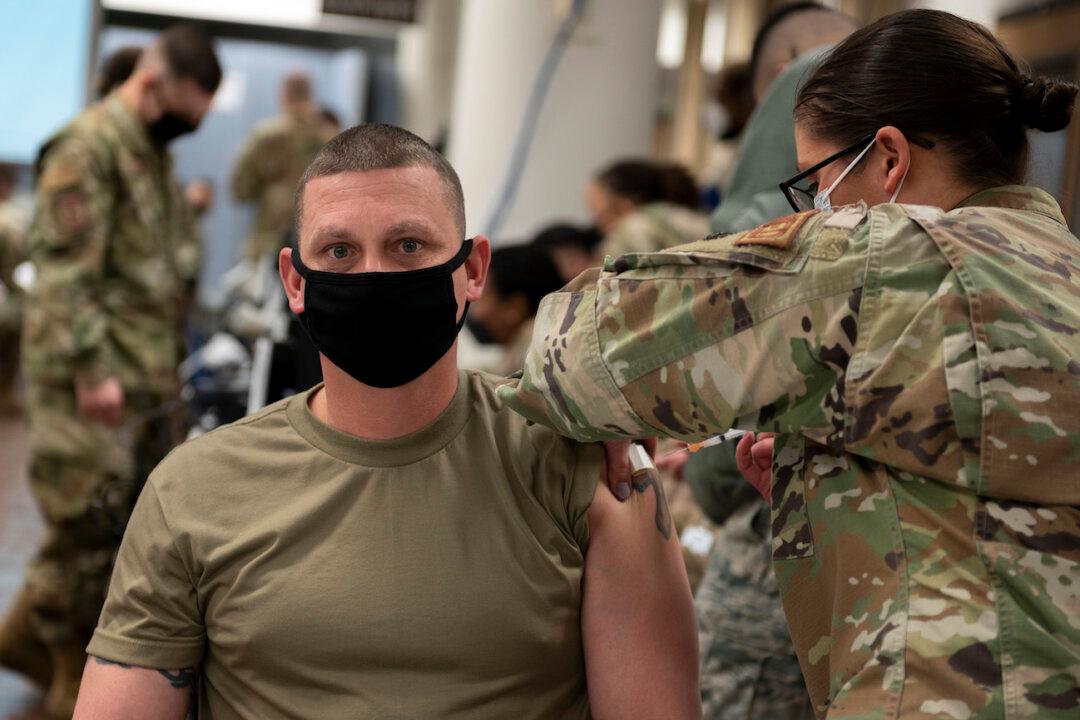A federal district court in Ohio has temporarily blocked the Biden administration from enforcing the COVID-19 vaccine mandate on thousands of U.S. Air Force service members who remain unvaccinated after having opposed the shot on religious grounds but have had their religious exemption applications denied.
U.S. District Court Judge Matthew McFarland, who was appointed by former President Donald Trump in late 2019, issued a temporary restraining order filed on Thursday preventing the Biden administration from taking any action for at least 14 days against any Air Force member who opted not to take the COVID-19 vaccine.





